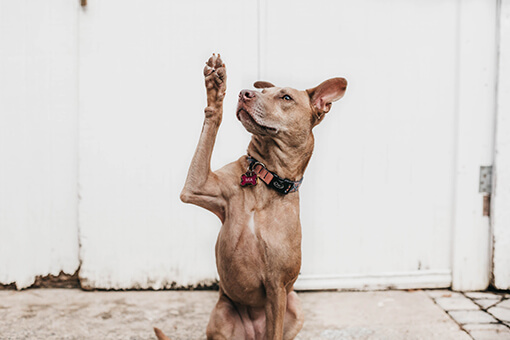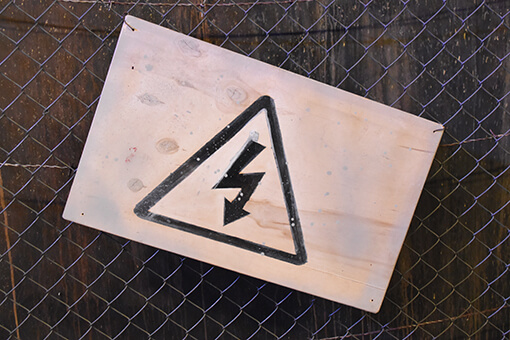Hi! It’s konkaz (@konkazuk) here.
We are going to have a look at some basic ways to create question sentences with this article.

If you become good at questioning, you will be able to draw further information and this will lead you to deeper conversation, hence you will learn more!
The content of this blog post might be most appropriate for beginner levels, however, I have featured a good number of example-sentences that can be of good use in self-talk practice for those who are fine with grammars more or less but not really confident when it comes to speaking.
By reading them aloud over and over again, the patterns of question sentence will stick to your head, so please make the best use of them.
Yes/No Questions

We begin with the most basic type of question that can be answered by “yes” or “no”.
Question form with Be-verb/modal verb

Here, we’re going to have a look at some question forms with “Be-verbs” as well as with ”modal verbs” such as “can” and “will”.
Let’s just start with simple affirmative sentences that begin with basic pronoun, for instance…
This is my husband.
This is how much I have in my bank account at the moment.
To transform these sentences into the form of question, we swap the subject (pronoun) with Be-verb.
👉 Is this my husband?
👉 Is this how much I have in my bank account at the moment?
When you write them down, you need to add a question mark at the end of the sentence.
The answer for these could be either “Yes, it is.” or “No, it isn’t.”
Anyway, please read the following affirmative sentences, and transform them into the form of question (and read them aloud!)
It is wrong.
It’s too late.
👉 Is it wrong?
👉 Is it too late?
That’s my cat.
That’s my mobile phone.
👉 Is that my cat?
👉 Is that my mobile phone?
I am stupid.
I am a bit tired today.
👉 Am I stupid?
👉 Am I a bit tired today?
As for these two, the subject of the sentences is “I”, therefore, the answer can be “Yes, I am.” or “No, I’m not!”
He is an alien.
He is not a nice person.
👉 Is he an alien?
👉 Is he not a nice person?
The answer for these questions could be either “Yes, he is.” or “No, he isn’t. (No, he’s not.)”
They are mine.
They are different.
👉 Are they mine?
👉 Are they different?
The answer for these questions could be either “Yes, they are.” or “No, they aren’t. (No, they’re not.)”

Are you reading the sentences aloud by the way?
She is the boss.
She is good-looking.
👉 Is she the boss?
👉 Is she good-looking?
You could answer to these questions either with “Yes, she is.” or “No, she isn’t. (No, she’s not.)”
And finally, when the subject of the sentence is “you”…
You are hungry.
You are Kate’s sister.
👉 Are you hungry?
👉 Are you Kate’s sister?
So now, imagine these questions are for you, then you are going to answer like.. “Yes, I am” or “No, I’m not.”

When you use “you” as a subject, you are basically talking to someone that is confronting you, so it’s not really an ideal shape for “self-talk” practice, however, if you are a man/woman of great imagination, you can do it to the person in a mirror (yourself) as long as you can keep your sanity. W
These example-sentences are not grammatically difficult ones at all, however, by applying various vocabularies and different situations to a form and reading each example aloud will eventually make yourself capable of creating a sentence reflectively in a real situation.

Well, let’s try them with past tense this time.
(Some sentences that will not make sense when the past tense is applied are being omitted.)
Be-verbs are to be changed like below with past tense.
am 👉 was
are 👉 were
Now, please transform the following sentences into the question form.
(The question forms for the following example-sentences are not featured this time, by the way.)
It was wrong.
It’s too late.
👉 ???
That’s my cat.
That’s my mobile phone.
👉 ???
I was stupid.
I was a bit tired earlier today.
👉 ???
He was an alien.
He was not a nice person.
👉 ???
They were mine.
They were different.
👉 ???
She was the boss.
She was good-looking.
👉 ???
You were hungry.
👉 ???
How did you get on with them?

These question sentences start with “Was” or “Were” and if you pucker up your mouth firmly when you pronounce the first letter “w”, it will sound more proper English. ✨
Now, let’s apply some “modal verbs” such as “can” and “will” this time.
First, look at affirmative sentences and change their forms into the question and speak them out.
Do not look at the answers straight away!
This can be devastating.
This will be interesting.
👉 Can this be devastating?
👉 Will this be interesting?
It might be right.
It can be true.
👉 Might it be right?
👉 Can it be true?
That will help us a lot.
That can cause a serious problem.
👉 Will that help us a lot?
👉 Can that cause a serious problem?
I can bear with her.
I will feel sick if I read this book on the bus.
👉 Can I bear with her?
👉 Will I feel sick if I read this book on the bus?
He can play the guitar.
He will attend the meeting.
👉 Can he play the guitar?
👉 Will he attend the meeting?
They can finish this task by the end of the day.
They are going to succeed.
👉 Can they finish this task by the end of the day?
👉 Are they going to succeed?
She will agree with me.
She will be able to come tomorrow’s party.
👉 Will she agree with me?
👉 Will she be able to come tomorrow’s party?
You will remember my phone number.
You might scream if you fail the exam.
👉 Will you remember my phone number?
👉 Might you scream if you fail the exam?
Did you manage to make them into the form of question?
The procedure you need to follow to create a form of question might be fairly simple, however, reading whole one sentence one after another must have required a bit of effort, I assume?
Even reading these example-sentences aloud makes you realise that using your voice is crucially significant for developing your speaking skills, doesn’t it?
Question form with genral verb

Now, we are going to have a look at how question sentences are created from affirmative form whose verb is ordinary (no Be-verbs nor modal verbs).
Anyway, let’s check the following sentences out…
Keith plays the guitar.
Her older sister reads Japanese books.
When these sentences are transformed into the shape of question, they will be…
👉 Does Keith play the guitar?
👉 Does her older sister read Japanese books?
So, you basically put an auxiliary verb “Does” at the beginning of the sentence, bring the verb form back to its original and add a question mark at the end.
Then, how about the next ones?
Keith and Ron play the guitar.
Her older sisters read Japanese books.
👉 Do Keith and Ron play the guitar?
👉 Do her older sisters read Japanese books?
This time, we place “Do” at the beginning of the sentence and put a question mark at the end of the sentence.
Therefore…
When the subject is the third person singular, we use 👉 Does
When the subject is anything other than the third person singular, we use 👉 Do
Let’s try some more sentences…
Takeshi lives in Paris.
She eats a lot.
👉 Does Takeshi live in Paris?
👉 Does she eat a lot?
It dries quickly.
She goes to bed early.
👉 Does it dry quickly?
👉 Does she go to bed early?
Jack and Jess live together.
Those people play basketball.
👉 Do Jack and Jess live together?
(This can be “Do they live together?)
👉 Do those people play basketball?
(This also can be “Do they play basketball? depending on its context.)
It gives me a sense of freedom.
They kill animals.
👉 Does it give me a sense of freedom?
👉 Do they kill animals?

Now, we are going to have a look at the past tense of these example-sentences.
The past tense is easy-peasy. You don’t need to distinguish between “Do” and “Does” depending on its grammatical situation, but instead, you can simply apply “Did” with any situation.
Keith played the guitar.
Her older sister read Japanese books.
👉 Did Keith play the guitar?
👉 Did her sister read Japanese books?
Watch out the pronunciation of the verb “read”!
It is pronounced as [red] with the past tense while it is pronounced as [riːd] with its original form.
Keith and Ron played the guitar.
Her older sisters read Japanese books.
👉 Did Keith and Ron play the guitar?
👉 Did her older sisters read the Japanese books?
Takeshi lived in Paris.
She ate a lot.
👉 Did he live in Paris?
👉 Did she eat a lot?
It dried quickly.
She went to bed early.
👉 Did it dry quickly?
👉 Did she go to bed early?
Jack and Jess lived together.
Those people played basketball.
👉 Did Jack and Jess live together?
(This can be “Did they live together?)
👉 Did those people play basketball?
(This also can be “Did they play basketball? depending on its context.)
It gave me a sense of freedom.
They killed animals.
👉 Did it give me a sense of freedom?
👉 Did they kill animals?
Now, we are moving on to the case when the first person pronoun “I” is used as a subject.
I love myself.
I hate myself.
👉 Do I love myself?
👉 Do I hate myself?
We place auxiliary verb “Do” at the beginning of the sentence and put a question mark at the end.
“We” is also the first person pronoun, hence “Do” is to be applied.

By the way, when it comes to “self-talk” practice, I believe the “present tense” is not used so often as the other tenses, to be honest.
It’s more often with the form of past tense or present perfect, just like…
Did I switch off the light?
Have I overslept again?
or some modal verbs like…
Can I cancel the appointment?
Should I call her?
Well, let’s just memorise how it works with present tense, since it’s not that we don’t use them at all.
Regarding the second person pronoun “You”, “Do” is placed at the beginning of the sentence with present tense and “Did” with the “past tense”, but since its use is not ideal for “self-talk” practice, let me skip the example-sentences here.
Question sentence with perfect form

The “present perfect form” is applied to the situation where something that happened at some point in the past has been going on up to the present.
It’s affirmative sentence is expressed with the structure of
subject + have (has) + past participle form.
For example…
I have been here before.
He has finished his task.
And if you turn them into the form of question, they will be…
👉 Have I been here before?
👉 Has he finished his task?
And the answers to these questions will be…
Yes, I have. / No, I haven’t.
Yes, he has. / No, he hasn’t.
So, we place Have/Has at the beginning of the sentence and put a question mark at the end.
When the subject is the third person singular, “has” is to be applied, otherwise we use “have”.
Please turn the following example-sentences into the form of question and read them aloud.
She has lived there since she was born.
They have lost the match.
👉 Has she lived there since she was born?
👉 Have they lost the match?
The man has been loitering by the entrance since morning.
All the light bulbs have been replaced with new ones.
👉 Has the man been loitering by the entrance since morning?
👉 Have all the light bulbs been replaced with new ones?
She has eaten nothing at all since last night.
The mobile phone has been completely charged.
👉 Has she eaten nothing at all since last night?
👉 Has the mobile phone been completely charged?
How did it go?
Once you have got used to creating the form of question, create your original ones and speak them aloud!
Question sentences with interrogative words (Wh questions)

Interrogative words are…
- What?
- Which?
- When?
- Where?
- Who?
- Who?
- How?
As for the questions that begin with interrogative words, we cannot respond to them with Yes/No since the answer could be anything.
A form of Wh-question will begin with an interrogative word followed by Be-verb, and when a general verb is used in a sentence, an interrogative word is followed by do, does, have, has and so on.
Anyway let’s have a look at the sentence below.
Masaki is playing badminton with his girlfriend in the garden.
We are going to create Wh-questions based on this sentence.
What?

When we want to know “what” Masaki is doing, “badminton” will be the equivalent of “what”, won’t it?
In this case, we place an interrogative word “What” at the beginning of the sentence followed by Be-verb, and add a question mark at the end to complete.
Masaki is playing badminton with his girlfriend in the garden.
👉 Masaki is playing what with his girlfriend in the garden.
👉 What is Masaki playing with his girlfriend in the garden?
Who?

Here, we want to know “who” are playing badminton. In this case, “Masaki and his girlfriend” are the equivalent of “who”, and since two people are involved, we replace “is” with “are”.
Masaki is playing badminton with his girlfriend in the garden.
👉 Who are playing badminton in the garden?
Now, this time, we want to know with “who” Masaki is playing badminton.
In this case, “Masaki’s girlfriend” is the equivalent of “who”, hence, it will be…
Masaki is playing badminton with his girlfriend in the garden.
👉 Masaki is playing badminton with who in the garden.
👉 Who is Masaki playing badminton with in the garden?
* Note that the preposition “with” has been left as it was.
Where?

We would like to know “where” they are playing badminton.
This time, “in the garden” is the equivalent of “where”, therefore…
Masaki is playing badminton with his girlfriend in the garden.
👉 Masaki is playing badminton with his girlfriend where.
👉 Where is Masaki playing badminton with his girlfriend?
I think that is pretty much we could get from the example sentence.
How?

This time we are going to have a check on “how” with the similar process.
He goes to work by bus.
We would like to know “how” he goes to work.
So, this time “by bus” will be the equivalent of “how”, won’t it?
Therefore…
He goes to work by bus.
👉 He goes to work how.
A general verb is used instead of Be-verb with this sentence, so we apply “does” and bring the verb back into its original form.
👉 He does go to work how.
Finally, we change the words with the collect order…
👉 How does he go to work?
Which?

Right. Let’s do one more, shall we?
Yours are the red ones out of these.
You want to know “which ones” are yours.
Hence, “the red ones” will be the equivalent of “which ones”, won’t they?
Therefore…
Yours are the red ones out of these.
👉 Yours are which ones out of these.
👉 Which ones are yours out of these?
As we have gone through some procedures, we create a form of the question by replacing the words that are equivalent of “where, what, who, etc.” with an appropriate interrogative word and bring it at the beginning of the sentence.
Anyway, here, I have prepared several example-sentences with a form of question for each interrogative word, therefore please read them aloud so that the pattern of them will stick to your head.
What was his name?
What was I watching last night?
What am I thinking about?
What have I done?
What did my daughter see in the sky last night?
What was I supposed to do in such a situation?
Which colour is your favourite?
Which one was more important?
Which way did I want to go?
Which was good for Alex?
Which one did you choose in the end?
When did I see him?
When was the last time I played the piano?
When does he come to my house?
When did we meet up?
When was your birthday?
Where is he from?
Where does he come from?
Where do you live?
Where did I drop my wallet last night?
Where were you?
Who am I supposed to meet there?
Who did you go to the concert with?
Who do you think you are?
Who was Jack playing basketball with?
Who were they?
Why did you go there?
Why did I tell her the truth?
Why has he been waiting for her for such a long time?
Why have they got your number?
Why did I forget to lock my bike?
How did you do it?
How is it possible?
How did you know it was him?
How did it happen?
How am I supposed to know it?
Indirect questions

First of all, when you ask someone for information like…
Where can I find a cash machine around here?
some people might get taken aback or might get upset, therefore in order to avoid this, we use “Indirect questions” which can be created by placing the phrase like “Do you know” at the beginning of the sentence to make it sound more polite or friendly.
👉 Do you know where I can find a cash machine around here?
In this case, the phrase “Do you know 〜” already has got a structure of question, therefore we bring the original sentence’s question form back into normal as [subject + verb].
Let’s have a look at the following sentence.
Where did you buy your ticket from?
And to change this into an indirect question, it can be…
👉Could you please tell me where you bought your ticket from?
Again, the phrase “Could you tell me 〜” has got a structure of a question, so we exclude the word “did” that was brought about during the process of making a question form and bring the original verb form “buy” back to its past tense “bought”.
In short, we change the order of an original question form into the shape of…
Interrogative word + subject + verb
Well, this is it for the article of creating some basic question forms.
I presume it had a bit of volume, so thank you very much for reading this through and I hope it has been of good use to your speaking practice.
Bye now.
konkaz

